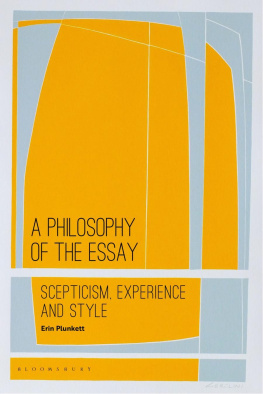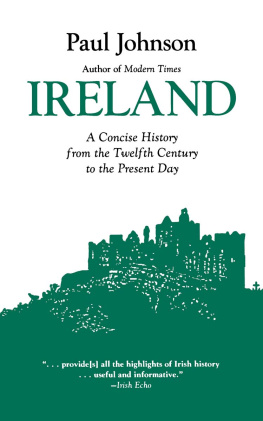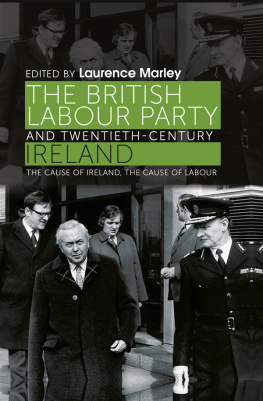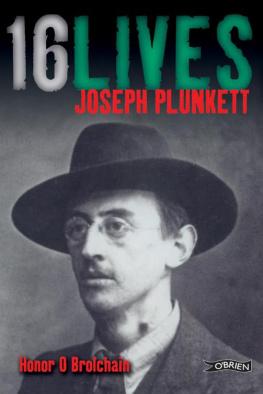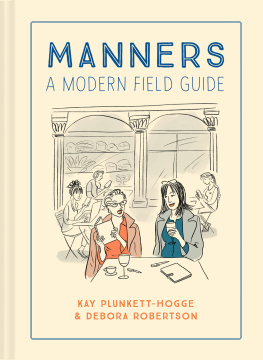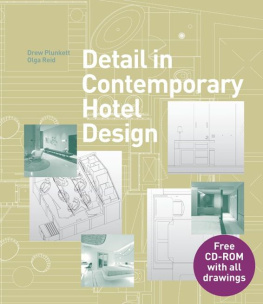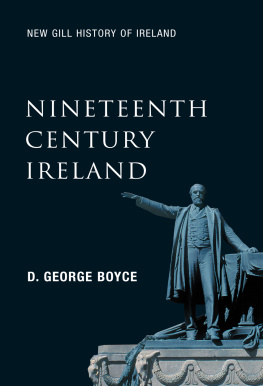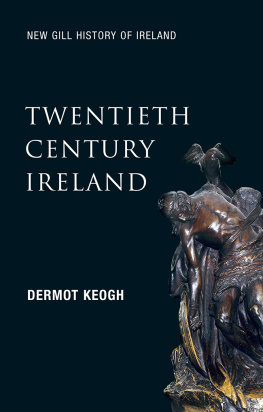IRELAND
IN THE NEW CENTURY
BY THE RIGHT HON.
SIR HORACE PLUNKETT, K.C.V.O., F.R.S.
LONDON
JOHN MURRAY, ALBEMARLE STREET, W.
1904
Printed by BROWNE AND NOLAN, LTD., Dublin
TO THE MEMORY OF
W.E.H. LECKY,
I DEDICATE ALL IN THIS BOOK
THAT IS WORTHY OF THE FRIENDSHIP
WITH WHICH HE HONOURED ME,
AND OF THE COUNSEL WHICH HE GAVE ME
FOR MY GUIDANCE IN IRISH PUBLIC LIFE.
PREFACE
Those who have known Ireland for the last dozen years cannot have failed to notice the advent of a wholly new spirit, clearly based upon constructive thought, and expressing itself in a wide range of fresh practical activities. The movement for the organisation of agriculture and rural credit on co-operative lines, efforts of various kinds to revive old or initiate new industries, and, lastly, the creation of a department of Government to foster all that was healthy in the voluntary effort of the people to build up the economic side of their life, are each interesting in themselves. When taken together, and in conjunction with the literary and artistic movements, and viewed in their relation to history, politics, religion, education, and the other past and present influences operating upon the Irish mind and character, these movements appear to me to be worthy of the most thoughtful consideration by all who are responsible for, or desire the well-being of the Irish people.
I should not, however, in days when my whole time and energies belong to the public service, have undertaken the task of writing a book on a subject so complex and apparently so inseparable from heated controversy, were I not convinced that the expression of certain thoughts which have come to me from practical contact with Irish problems, was the best contribution I could make to the work on which I was engaged. I wished, if I could, to bring into clearer light the essential unity of the various progressive movements in Ireland, and to do something towards promoting a greater definiteness of aim and method, and a better understanding of each other's work, among those who are in various ways striving for the upbuilding of a worthy national life in Ireland.
So far the task, if difficult, was congenial and free from embarrassment. Unhappily, it had been borne in upon me, in the course of a long study of Irish life, that our failure to rise to our opportunities and to give practical evidence of the intellectual qualities with which the race is admittedly gifted, was due to certain defects of character, not ethically grave, but economically paralysing. I need hardly say I refer to the lack of moral courage, initiative, independence and self-reliancedefects which, however they may be accounted for, it is the first duty of modern Ireland to recognise and overcome. I believe in the new movements in Ireland, principally because they seem to me to exert a stimulating influence upon our moral fibre.
Holding such an opinion, I had to decide between preserving a discreet silence and speaking my full mind. The former course would, it appeared to me, be a poor example of the moral courage which I hold to be Ireland's sorest need. Moreover, while I am full of hope for the future of my country, its present condition does not, in my view, admit of any delay in arriving at the truth as to the essential principles which should guide all who wish to take a part, however humble, in the work of national regeneration.
I desire to state definitely that I have not written in any representative capacity except where I say so explicitly. I write on my own responsibility, with the full knowledge that there is much in the book with which many of those with whom I work do not agree.
December, 1903.
CONTENTS
THEORETICAL.
THE ENGLISH MISUNDERSTANDING.
THE IRISH QUESTION IN IRELAND.
THE INFLUENCE OF POLITICS UPON THE IRISH MIND.
THE INFLUENCE OF RELIGION UPON SECULAR LIFE IN IRELAND.
A PRACTICAL VIEW OF IRISH EDUCATION.
THROUGH THOUGHT TO ACTION.
PRACTICAL.
THE NEW MOVEMENT; ITS FOUNDATION ON SELF-HELP.
THE RECESS COMMITTEE.
A NEW DEPARTURE IN IRISH ADMINISTRATION.
GOVERNMENT WITH THE CONSENT OF THE GOVERNED.
PART I.
THEORETICAL.
"It is hard to say where history ends, and where religion and politics begin; for history, religion and politics grow on one stem in Ireland, an eternal trefoil."Lady Gregory.
CHAPTER I.
THE ENGLISH MISUNDERSTANDING.
Whatever may be the ultimate verdict of history upon the long struggle of the majority of the Irish people for self-government, the picture of a small country with large aspirations giving of its best unstintingly to the world, while gaining for itself little beyond sympathy, will appeal to the imagination of future ages long after the Irish Question, as we know it, has been buried. It may then, perhaps, be seen that the aspirations came to nought because they were opposed to the manifest destiny of the race, and that it should never have been expected or desired that the Dark Rosaleen should 'reign and reign alone.' Nevertheless, the fidelity and fortitude with which the national ideal had been pursued would command admiration, even if the ideal itself were to be altogether abandoned, or if it were to be ultimately realised in a manner which showed that the methods by which its attainment had been sought were the cause of its long postponement. Whatever the future may have in store for the remnant of the Irish people at home, the continued pursuit of a separate national existence by a nation which is rapidly disappearing from the land of all its hopes, and the cherishing of these hopes, not only by those who stay but also by those who go, will stand as a monument to human constancy.
The picture will be all the more remarkable when emphasised by a contrast which the historian will not fail to draw. Across a narrow streak of sea another people, during the same period, increased and multiplied and prospered mightily, spread their laws and institutions, and achieved in every portion of the globe material success which they can call their own. Yet, although Irishmen have done much to win that success for the English people to enjoy, and are to-day foremost in maintaining the great empire which their brain and muscle were ever ready to augment, Ireland makes no claim for herself in respect of the achievement. It is to her but a proof of what her sons will do for her in the coming time; it does not bring her nearer to her heart's desire.
Although the nineteenth century, with all its marvellous contributions to human progress, left Ireland with her hopes unfulfilled; although its sun went down upon the British people with their greatest failure still staring them in the face, its last decade witnessed at first a change in the attitude of England towards Ireland, and afterwards a profound revolution in the thoughts of Ireland about herself. The strangest and most interesting feature of these developments was that in practical England the Irish Question became the great political issue, while in sentimental Ireland there set in a reaction from politics and an inclination to the practical. The twentieth century has already brought to birth the new Ireland upon whose problems I shall write. If the human interest of these problems is to be realized, if their significance is not to be as wholly misunderstood as that of every other Irish movement which has perplexed the statesmen who have managed our affairs, they must be studied in their relation to the English and Irish events of the period in which the new Ireland was conceived.



